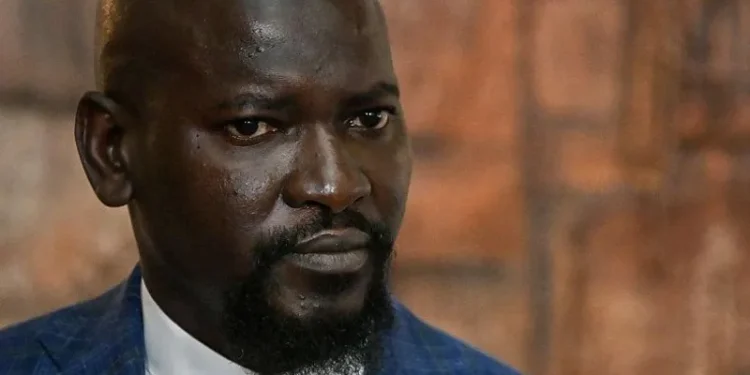Guinea’s coup leader, Colonel Mamady Doumbouya, has formally declared his intention to run for president in the upcoming December election, ending months of speculation and breaking his earlier pledge to return the country to civilian rule.
Doumbouya, who seized power in a military coup four years ago, submitted his candidacy to the Supreme Court on Monday, flanked by armed soldiers and dressed in his trademark dark sunglasses, though he made no public remarks.
His entry into the race comes amid widespread concerns over the credibility of the election after two of Guinea’s main opposition parties — the RPG Arc en Ciel and the UFDG — were barred from contesting. The move has deepened fears of a managed transition designed to entrench military control under the guise of democracy.
Public outrage also followed the government’s announcement that candidates must pay a hefty deposit of 875 million Guinean francs, equivalent to about $100,000, to participate.
Although the fee is only slightly higher than in previous elections, analysts say many had hoped it would be reduced to encourage broader participation.
When Doumbouya ousted then-President Alpha Condé in 2021, he vowed that neither he nor any member of the transitional military council would seek political office, insisting that “as soldiers, we value our word.”
His decision to now contest under a newly crafted constitution that permits him to run has been viewed by critics as a betrayal of that promise.
Since taking power, Doumbouya’s government has come under growing international scrutiny for its crackdown on dissent, suspension of media outlets, and heavy-handed suppression of protests demanding a return to democratic rule.
Ironically, he had justified overthrowing Condé, who was 83 at the time, on similar grounds, accusing him of corruption, human rights abuses, and economic mismanagement.
Before the coup, Doumbouya was a relatively unknown mid-ranking officer who had served in military missions across Afghanistan, Ivory Coast, Djibouti, and the Central African Republic, and trained in Israel, Cyprus, the UK, and France. At 40, he remains the youngest head of state in Africa.
The forthcoming election will be held without several prominent Guinean political figures, including former President Condé and ex-Prime Ministers Cellou Dalein Diallo and Sidya Touré, all of whom are currently in exile.









